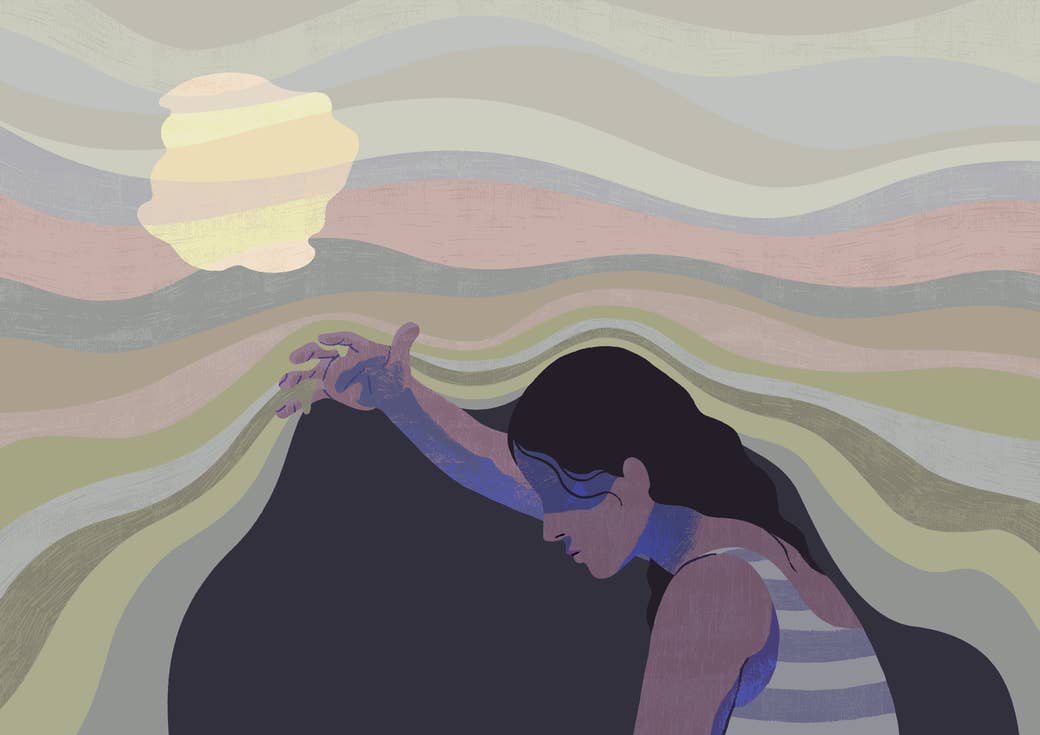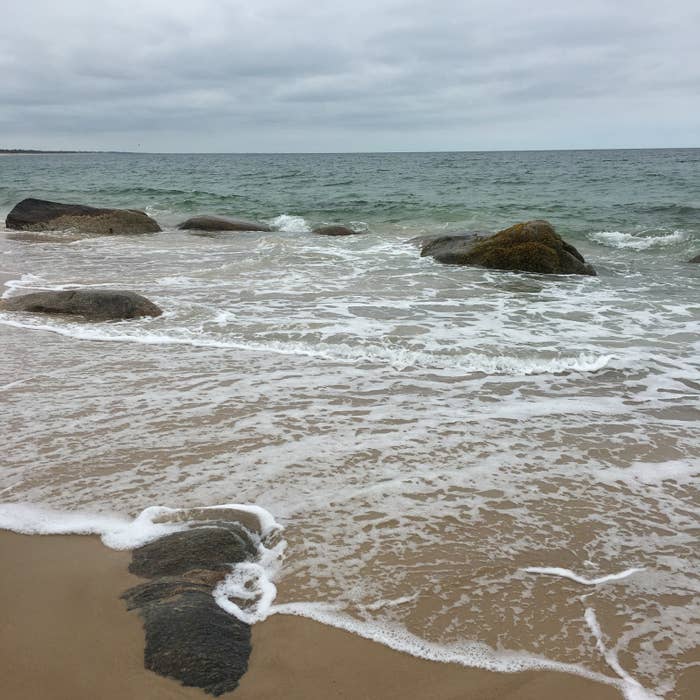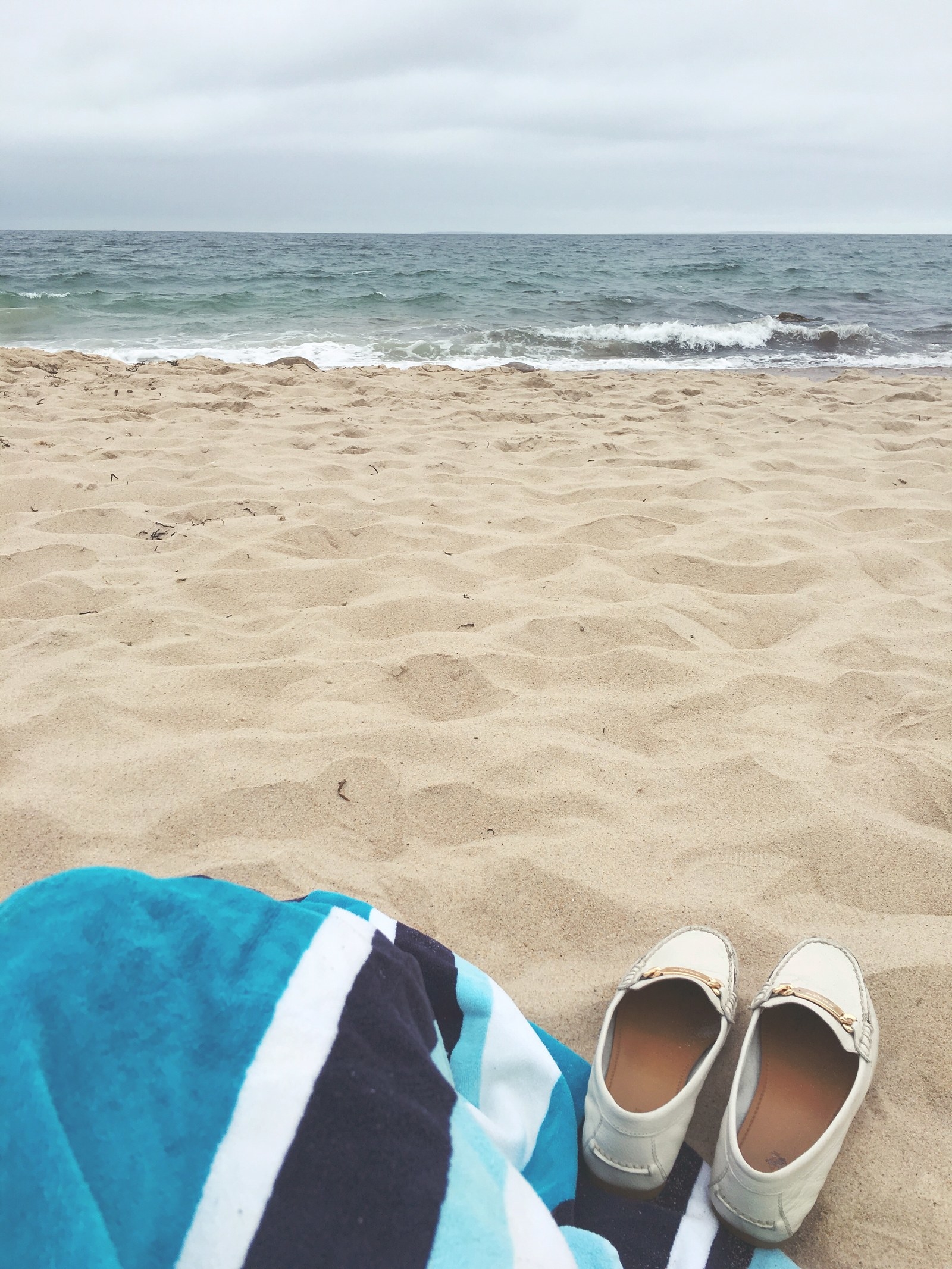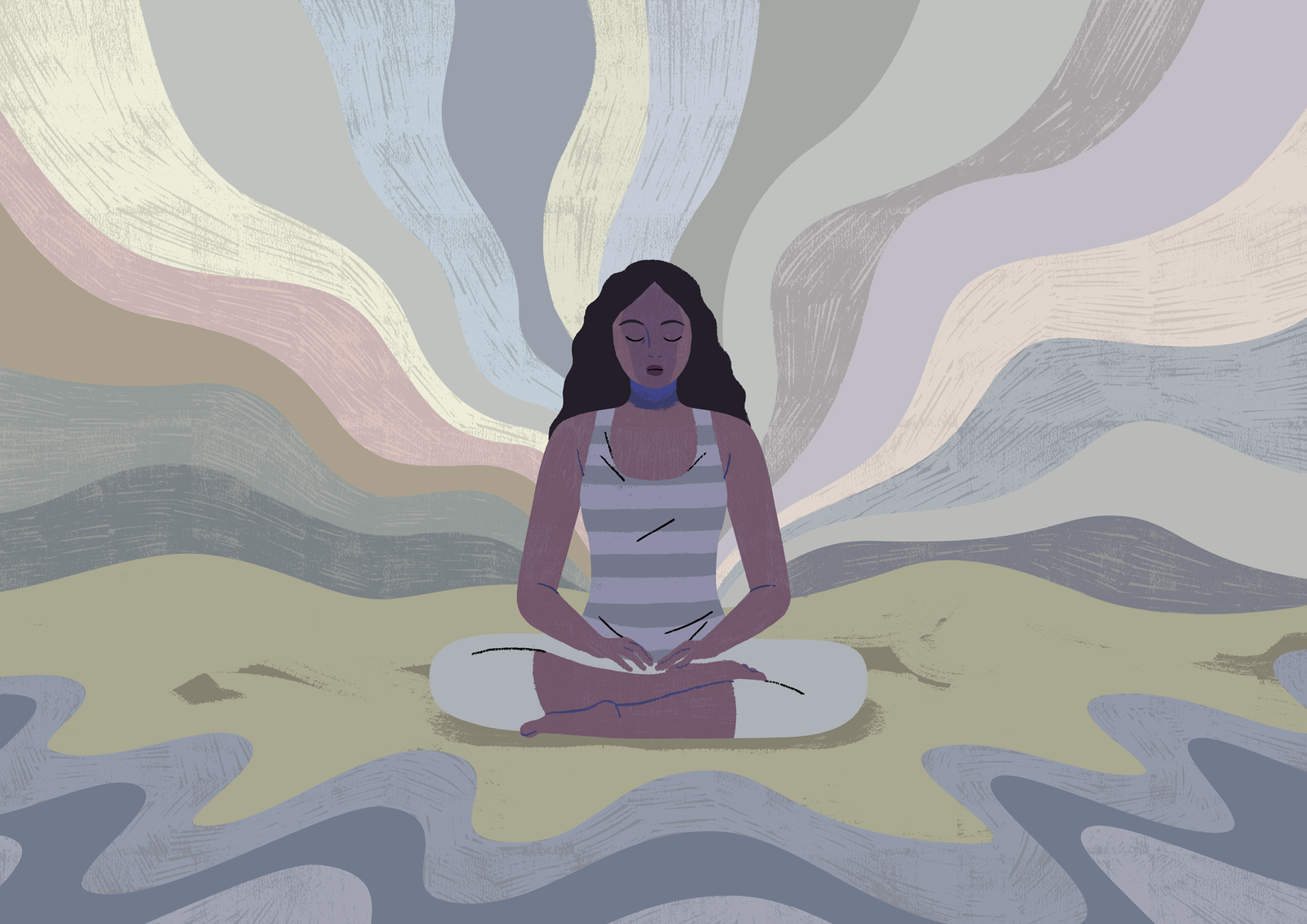
Summer is here, something that many of you are, quite likely, very excited about. “Finally,” you say on the first warm day of the year, filling a bathtub with rosé and making it rain with wedding invitations. “We earned it after this winter!” And I totally get you might feel that way. Things are literally coming alive after months of being dead! But here is where I confess that I don’t really get it — and that the truth is, as soon as we enter May, a sense of dread takes root in the pit of my stomach. As we march toward Memorial Day, it slithers up behind my ribcage and then snakes through my heart and out over my shoulders. By June, I'm experiencing full-blown Summer Scaries, an extremely unwelcome houseguest that will stay with me until roughly the end of September. For years, I’ve struggled to admit this, even just to my closest friends. Because what kind of emo antisocial loser doesn’t love summer?
This one, for starters. And a lot of others, I suspect. But even though I know now, after several years of experiencing this off-season sadness, that I’m not alone in my feelings — suicide rates are actually higher in the spring and summer than at Christmas and summer depression is definitely a thing — it can still be really hard to admit that you’re struggling to cope with a thing that everyone else seems to welcome. At this point, most of us acknowledge that the winter holidays are often difficult and stressful, and that a Hallmark movie Christmas isn’t the reality for most people. But I rarely hear anyone saying the same thing about the 4th of July. So I’m just going to go ahead and say it: summer is often difficult and stressful, and an Insta-worthy 4th of July isn’t the reality for most people.

Some of my seasonal sadness is rooted in the fact that I just don’t like summer. I don’t love pools or water parks. Boats? Sundresses? Picnics? Beaches? I could take them or leave them. (Also: fuck concerts, fuck fireworks, and fuck crowds.) I just really, really hate being hot, which means that the things that I do like doing outside — hiking, riding roller coasters, reading — are pretty much impossible for me to enjoy. Part of this is a wardrobe issue — shorts: how do they work?? — but there’s more to it than that.
When summer rolls around, the world just starts to feel heavy. For whatever reason, winter's cold, dry air, gray skies, and bare trees energize me and make me feel clearheaded. But in the summer, I find the idea of doing anything incredibly overwhelming; the heat and humidity drain me in a way that a 4 pm sunset and a weekly blizzpocalypse simply don’t. In the winter, we at least have a shared language for our malaise. I doubt anyone would bat an eye if you answered the “What did you do this weekend?” question with “Ugh, just stayed in — this weather, amirite?” in January. But it’s a lot harder to explain to people why the sun makes you want to stay inside.
Summer is often difficult and stressful, and an Insta-worthy 4th of July isn’t the reality for most people.
Heat is just hard. And the shedding of layers that is required in the summer leaves me feeling so exposed, so vulnerable. When the world is cold and dark, it’s easier to cover — literally and figuratively — the things you don’t really want to look at, the things you don’t want other people to see. But direct sunlight shows every flaw, makes every dusty corner visible, blasts heat on every raw spot. At best, I wilt; at worst, I melt down.
Part of the reason summer can feel so isolating is because the summer we’ve been sold by pop culture is inherently social. For better or worse, invitations to winter holiday gatherings are typically rooted in familial obligation. But summer’s defining activities are rooted in both family bonds and well-established social and romantic connections (i.e. “Oh we’re spending the week of the 4th at my boyfriend’s parents’ place!”), and you can’t really ask to be included. This makes it easier for people to slip through the cracks when people are making plans. Everyone thought someone else was looking out for you. And it so often feels like everyone is having fun without you.
Though I’m typically quite happy to be alone, summer is when I feel lonely. Cities and even suburbs tend to clear out during the summer; each week, it seems, a different handful of friends and coworkers are out of town. And as much as I like getting a seat on the subway or being able to get a bunch of work done because no one is around, it’s hard not to start to internalize it when you’re basically the only one in the office on a Friday afternoon for 12 weeks straight. Summer is the time when everyone leaves, and I am left behind.

Despite the fact that it’s so social, summer is also surprisingly selfish. Winter is about cuffing, about holding people near and close; in the summer, we’re looking for flings we can cast aside. During the winter holidays, we actually tend to be on our best behavior — expressing gratitude, volunteering, giving gifts, reaching out to people who seem a little isolated. Meanwhile, summer in America is just three straight months of us literally and figuratively asking ourselves, “How many beers can I shotgun, who can I fuck, and how many things can I light on fire?”
So when people are excited for summer, I can’t really relate. And I relate to the nostalgia (catching fireflies; fun family trips to the lake) even less. I didn’t grow up with fun family trips to the lake. I didn’t even grow up with air conditioning! My childhood summers were defined by eating junk food and watching The Price is Right and E! True Hollywood Stories with a big-ass fan pointed directly on me.
Because that’s the thing: if you are not of the economic class where “summer” is a verb, summer is just hot. (Like...SO HOT???) I still have to go to work — not to some pretty beach!!! I don’t think it’s an accident that my best summer memories are from the times I got to experience it like a rich person does: my ex’s family’s summer house in the Ozarks, a luxurious press trip to Vail, the idyllic summer camps I went to only because full scholarships were available. On the rare occasion that I’m summering, I think summer is wonderful.
When the world is cold and dark, it’s easier to cover — literally and figuratively — the things you don’t really want to look at, the things you don’t want other people to see.
Of course, being rich doesn’t protect you from feeling sad, and wherever you go, there you are — even if you are going to a $500-a-night hotel in the mountains, or to a private beach with 12 of your closest friends and an inflatable swan float. And plenty of poor people adore and feel joy in the summer. But it’s also true that wealth — not agriculture! — is at the root of American summer vacation, that school summer vacation is not good for poor kids, and that money and privilege remain the easiest way to experience a summer that is free of hassle and discomfort and risk. As KJ Dell’Antonia writes in the New York Times, “We can indulge our annual illusion of children filling joyful hours with sprinkler romps and robotics camp or we can admit the reality: Summer’s supposed freedom is expensive.”
For those of us who exist in a body that isn’t white or thin or cis or fully able or otherwise “acceptable,” summer can be even more exhausting. When I think about pools, I think of America’s racist history of public pools. When I think about dressing appropriately for hot weather, I think about the fact that I’m going to be harassed by men on the street literally every time I leave my apartment. (In the summer of 2016, I noted every single incident of street harassment I experienced. There wasn’t a single day where I was not harassed at least once.) In the winter, my heavy coat feels like armor and my huge, faux fur–trimmed hood works similarly to Offred’s bonnet in The Handmaid’s Tale; it makes it harder for men to see me, and for me to see and hear them. In the summer, though, these small security measures are stripped away. Like, is sweating off my makeup on a disgustingly humid subway platform not punishment enough? Now I also have to deal with men who interpret my bare arms and exposed calves as permission to — at best!!! — relentlessly dehumanize me? All before 8 fucking am??? Like, it’s all just so tiring. I just want to go back to bed.

This year, I’m trying to be more proactive about the low period that I now recognize is coming. First, I’m being open about how summer makes me feel — and as much as it annoys me to admit it, just the act of writing this essay has actually done a lot to defang my standard summer dread. I’ve booked some idyllic summer trips — something, to be clear, that I can only do because I have the disposable income for it — with friends and family, hoping to experience the kind of healing that you can only get from looking to the sea and the sky and very tall trees. I’ve also been meditating and just trying to be really present on summer mornings (the ONLY redeemable thing about summer). And I bought a bunch of pretty string lights for my apartment because I miss the pretty glow of my Christmas tree, damn it. Basically, I’m hoping that by connecting with nature and with loved ones, I’ll be able to smooth summer’s jagged edges into something more like sea glass. But it’s still early in the season, and I have no idea how effective this will be.
Occasionally, a summer breeze will hit me just right during magic hour, and for a brief, beautiful moment, I’ll get the clear sense that yes, for everything there is a season, and yes, this truly is the season for pleasure and possibility. But the reality is that grief doesn’t magically end when winter does, and trauma doesn’t care about the calendar. Life is hard, and there’s no perfect time of year when it won’t be hard. The only real solution is the one that works year-round: know that you aren’t alone, don’t be ashamed to reach out to your people, find beauty and joy where you can, and remember that even when you can’t feel it, the world is still spinning forward — toward better days and better weather.
